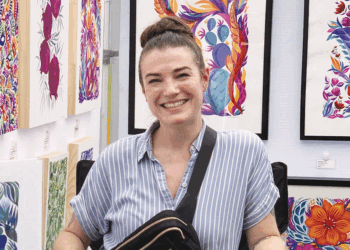By ERIN ELLIOTT / Community News Editor
For the second year, approximately 40 advanced placement students at Hazel Park Middle School Academy in St. Paul will take part in a Holocaust simulation. The activity, which is set for Feb. 13, is intended to “help the students get a greater understanding of the Holocaust and draw some relevance to it for them,” according to Hazel Park Principal Coleman McDonough, who spoke to the AJW on Thursday.
But an e-mail that was sent to Hazel Park staff announcing the simulation raised concerns for McDonough.
The e-mail, which was sent on Jan. 29 to all of the approximately 90 staff members by eighth grade English teacher Lee Vang, included the subject line “Holocaust simulation — Live out your dreams!” and was titled “Torture Time!”
According to the e-mail, a copy of which was provided to the AJW, the simulation was described as “a day of sheer pleasure for the staff being themselves as Nazi Officers and becoming Adolfs… because staff need the stress relief and entertainment. J/K!!!”
The purpose of the e-mail was to make staff members aware of the simulation and to solicit ideas for activities in which the AP students could take part. The e-mail mentioned a few of the previous year’s activities, which included making some of the students crawl from the cafeteria to another room or picking up coins that teachers threw out.
“Any more ideas?” Vang asked in the e-mail. “Think of your most favorite student and what you’d like to do and I’ll do it to these students for you. Ha!”
Students are also required to wear yellow stars and must have parental permission to participate in the simulation.
McDonough said that staff members are asked to participate in the “isolation of the kids…. trying to make the connection of how the Jews were separated from society essentially.”
Vang’s e-mail found its way to the Jewish Community Relations Council, via a local TV reporter, and to the desk of Laura Zelle, director of the JCRC’s Tolerance Minnesota program, who contacted McDonough.
“We always applaud any educator who takes on Holocaust education because it is complex and not always easy to do,” Zelle told the AJW. “We contacted [Hazel Park] because we wanted to recommend that to teach about the Holocaust, they stick to using primary sources — speakers, personal testimony, books, films — and enrich their curriculum that way. The simulation is an extension, which can often leave kids with a different impression.”
Zelle also provided McDonough with information about the JCRC’s annual trip to the U.S. Holocaust Memorial Museum, which is sold out for this year, but would be available for his educators in 2010. McDonough mentioned that some of his teachers have visited the museum in the past.
McDonough accepted Zelle’s offer to meet with the eighth grade team in charge of the simulation, though the meeting would not take place until after Feb. 13. He also expressed to Zelle that no ill intent was meant by Vang.
In the JCRC’s official statement on the matter, Zelle said that many teachers rely on simulations “to help students experience unfamiliar situations.”
“The activity may engage students, but they often forget the purpose of the lesson and, even worse, they are left with the impression that they now know what it was like to suffer or even to participate during the Holocaust,” Zelle said in the statement. “It is best to draw upon numerous primary sources, provide survivor testimony, and refrain from simulation games that lead to a trivialization of the subject matter.”
McDonough believes in the value of the activity, especially based on the students’ reactions from last year’s simulation.
“It was a really powerful experience for the kids,” McDonough said. “As a matter of fact, several of them provided unsolicited testimonials in writing to Miss Vang, their teacher, about what a great experience this was…so now we’re going to continue doing it.”



















